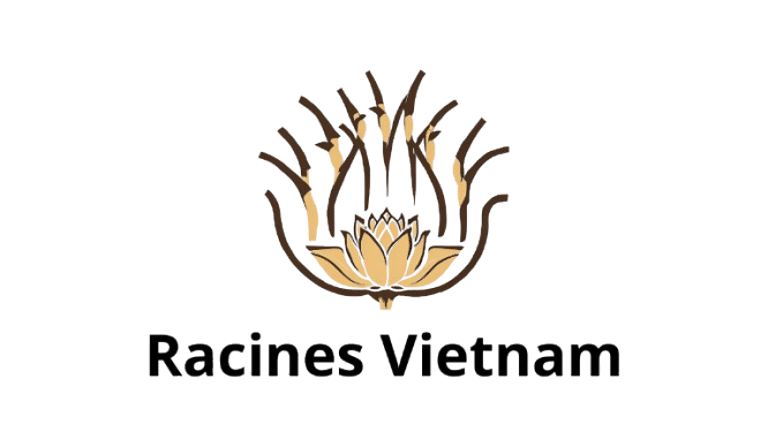“A blog created by an adopted Franco-Vietnamese for all those seeking to reconnect with their origins.”
Living in Nha Trang in 2025: Budget, Visas, Health & Housing Guide
Want to live in Nha Trang? Discover everything about visas, housing, insurance, and immigration for expats in Vietnam in 2025.
3/11/20254 min read


Living in Nha Trang as an Expat in 2025: Visas, Residency, Travel & Cost of Living
Nha Trang, located on Vietnam’s central coast, is one of the most attractive destinations for expats, travellers, digital nomads, and long-term residents in Southeast Asia. But before you can enjoy the lifestyle, you’ll need to understand the visa requirements, application process, and legal conditions to stay in Vietnam beyond a short visit.
In this guide, we’ll cover how to obtain a visa, the types of visas available in 2025, travel documents you’ll need, how to apply online, and the key steps to secure residency or long-term stay as a foreign national in Vietnam.
1. Visa Requirements for Travelling to Vietnam in 2025
Before entering Vietnam, all foreign nationals must check the current visa requirements based on their home country. Some nationalities may benefit from visa exemption agreements or simplified entry through online visa systems. Others must follow standard procedures through a consular office, embassy, or authorized visa service.
The Ministry of Foreign Affairs of Vietnam maintains up-to-date information on exemptions, entry rules, and special conditions for each country.
Most travellers will need one of the following:
A travel visa for short visits
A visitor visa to see family or friends
A student visa for academic or language programs
A business visa for employment or meetings
A transit visa for stopovers en route to another destination
A residence permit for long-term stay or work
A medical visa if visiting Vietnam for medical treatment
2. Types of Visas Available in Vietnam
Vietnam offers several visa categories depending on your purpose of travel. Here's a breakdown of the most common types of visas in 2025:
Tourist or Travel Visa: for leisure, valid 30–90 days.
Visitor Visa: for visiting relatives or acquaintances.
Student Visa: granted to students enrolled in schools or universities.
Business Visa: requires sponsorship from a Vietnamese company.
Transit Visa: for short stopovers at Vietnamese airports or land borders.
Non-immigrant Visa: includes temporary stays for study, business, medical, or family purposes.
Immigrant Visa: for those applying for residency or eventual permanent residence permit.
If you're planning to immigrate or settle long-term, you'll eventually need to convert your visa type or apply for residency status through the immigration department.
3. How to Apply for a Vietnamese Visa in 2025
Application Process Step-by-Step
The visa application process depends on your visa category and nationality. In general, to obtain a visa for Vietnam, you need to:
Choose the appropriate visa type for your stay.
Fill out the visa application form — either online or at the consulate.
Collect required travel documents, including:
A valid passport (at least 6 months before expiration)
A letter of invitation (for business, study, or personal visits)
Travel itinerary and proof of onward travel
Medical treatment documentation, if relevant
Submit the form and pay the visa fees. Some fees may be refundable in case of rejection, depending on the visa type and the embassy's rules.
Wait for visa issuing confirmation. The processing time varies from 2 to 10 business days depending on the country and visa complexity.
If you're applying from your home country, check with the Vietnamese consulate-general or embassy. If you're already in Asia, some foreign nationals may be eligible to use online visa systems (e.g. e-Visa) or apply via recognized visa services.
4. Visa Services and Support
Many travellers use professional visa services to help with paperwork, translations, and letter of invitation processing. This is especially useful if you’re applying for:
A Russian visa
A Schengen visa (when continuing travel into Europe)
A complex immigrant visa or long-term residence permit
Services typically include:
Help applying for a visa
Reviewing your travel documents
Estimating processing times
Providing guidance on visa fees, documentation, and non-immigrant visa categories
Always ensure you’re using official or certified agencies.
5. Living in Nha Trang: Budget, Healthcare, and Lifestyle
Once your visa is secured and you've entered Vietnam legally, you’ll find that life in Nha Trang is affordable, stable, and well-suited for expats.
Cost of Living
Your monthly budget may include:
Housing: studios from $250–400, apartments $500–800
Food and transport: $200–300 total
Health insurance: $70–150
Leisure, travel, and extras: $100–200
Residency Options
To stay beyond the initial visa period, you’ll need to apply for a residence permit. This can be tied to:
A work contract
Long-term studies
Investment or business
Family reunification
Permanent residence is possible after years of legal stay, though it remains restricted for most immigrant visas unless family ties or heritage apply.
FAQs: Visa Rules for Vietnam in 2025
Is it possible to apply for a visa online?
Yes, many visa types can be requested through Vietnam’s online visa portal. Always verify eligibility by nationality.
What is the typical visa processing time?
It ranges from 2 to 10 days. Business visas and immigrant visa types may take longer due to verification steps.
Are visa fees refundable if my application is denied?
Some are, depending on the embassy's policy and the type of visa. Always check before submitting.
Do I need a letter of invitation?
Yes, for business, student, or visitor visas. It must be official and usually notarized.
Can I get a travel visa if I already hold a Schengen visa or Russian visa?
Yes, but these are separate. Your Schengen visa or Russian visa does not influence Vietnam’s decision. You still need to apply for a Vietnamese visa with the full set of supporting documents.
Can I transition from a non-immigrant to an immigrant status in Vietnam?
Yes, but it requires legal sponsorship, valid documents, and approval by Vietnamese immigration authorities.
Main Menu:
Explorations:
Resources & Immersive Content
Community & Support
Legal & Languages
Contact & Social Networks
✉️ contact@racinesvietnam.com
📱 Instagram | Facebook | YouTube
©️ Copyright
© 2025 RacinesVietnam.com — Tous droits réservés
Site indépendant, créé sans code, hébergé par Hostinger
